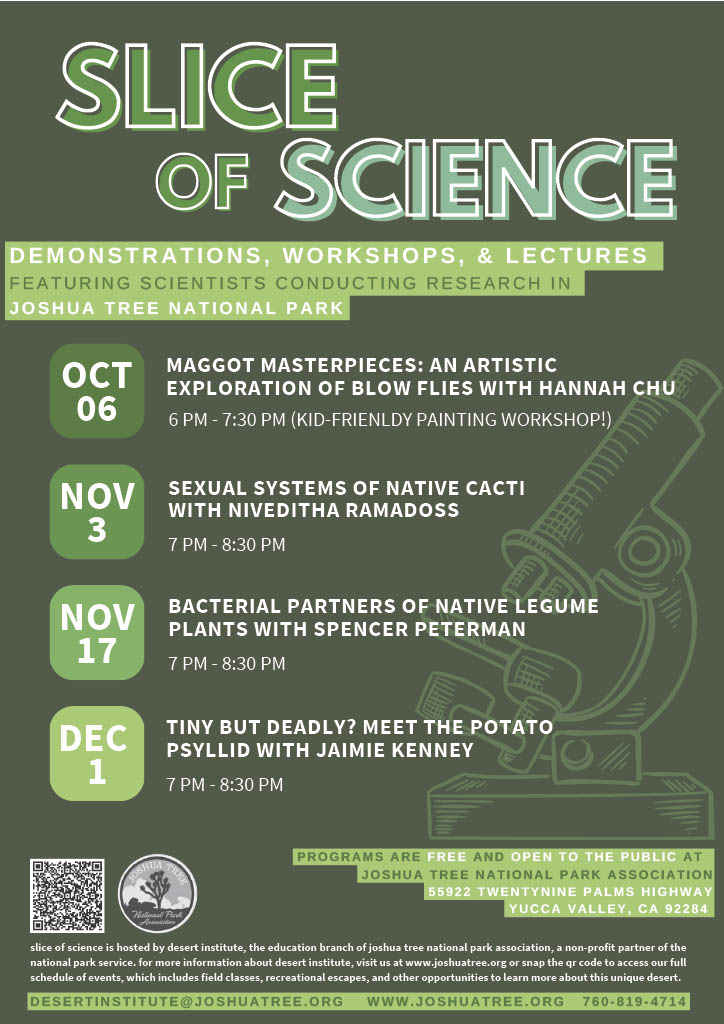Slice of Science
Desert instituteSlice of Science: Demonstrations, Workshops, and Lectures
Desert Institute has a long history of community outreach, and over the past 20-some years has provided hundreds of public lectures and events that elucidate the natural and cultural histories of the Morongo Basin and Coachella Valley. We’d like to introduce you to our newest series, “Slice of Science,” a program featuring lectures, presentations, demonstrations, and workshops by scientists and researchers who focus their efforts in desert environments.
Our first round of presentations feature Joshua Tree National Park Association Graduate Student Research Grant recipients. All four of our fall guest speakers are PhD candidates conducting research projects in Joshua Tree National Park. This is an opportunity to learn about challenges and situations that currently exist in the national park and some of the ways the science community is responding.
All programs are free and open to the public! Our fall presentations will take place at Joshua Tree National Park Association (JTNPA West), 55922 Twentynine Palms Highway, Yucca Valley, CA 92284.

Next Up At Slice of Science...
November 3
7 – 8:30 PM
Niveditha Ramadoss
Unraveling the Consequences of Separate Sexes in Cacti
Did you know that the sexual systems of plants influence the attraction of bees? So what does it mean when the sexes are separated in a rare species of cacti found here in Joshua Tree National Park? Niveditha will let us in on the secret and demonstrate how to identify a bee’s favorite color!
The family Cactaceae is an excellent system to explore the effect of sexual systems on genetic diversity. This study examines the effects of the sexual systems on pollinator attraction and genetic diversity of the chollas aka genus Cylindropuntia (Cactaceae), a native cactus in North American deserts. The Cylindropuntia genus consists of both completely cosexual (hermaphroditic) and separate sexual (gynodioecious/dioecious) systems constituting a suitable model to explore the evolutionary impacts of sexual systems. Joshua Tree National Park is an important place harboring a large number of species in this genus, including the endemic species C. chuckwallensis. In addition to providing answers to the consequences of the sexual systems, this study will be the first to provide genetic data for these species which is crucial for inferring their conservation status.
Niveditha Ramadoss is a PhD student in the joint doctoral Evolutionary Biology program at SDSU and UCR. Her research centers on the sexual systems of native cacti and their influences. She obtained her Masters from CSU Northridge, where she genetically modified plants for stress tolerance. In her free time, she fosters kittens from the San Diego Humane Society.
The Twentynine Palms Historical Society (TPHS) and Desert Institute are continuing to work together but in new capacities. The TPHS is hosting “Fridays at the Museum” at the Old Schoolhouse Museum, a new take on the 2nd Friday Lecture series that was previously a collaboration between TPHS and Desert Institute.